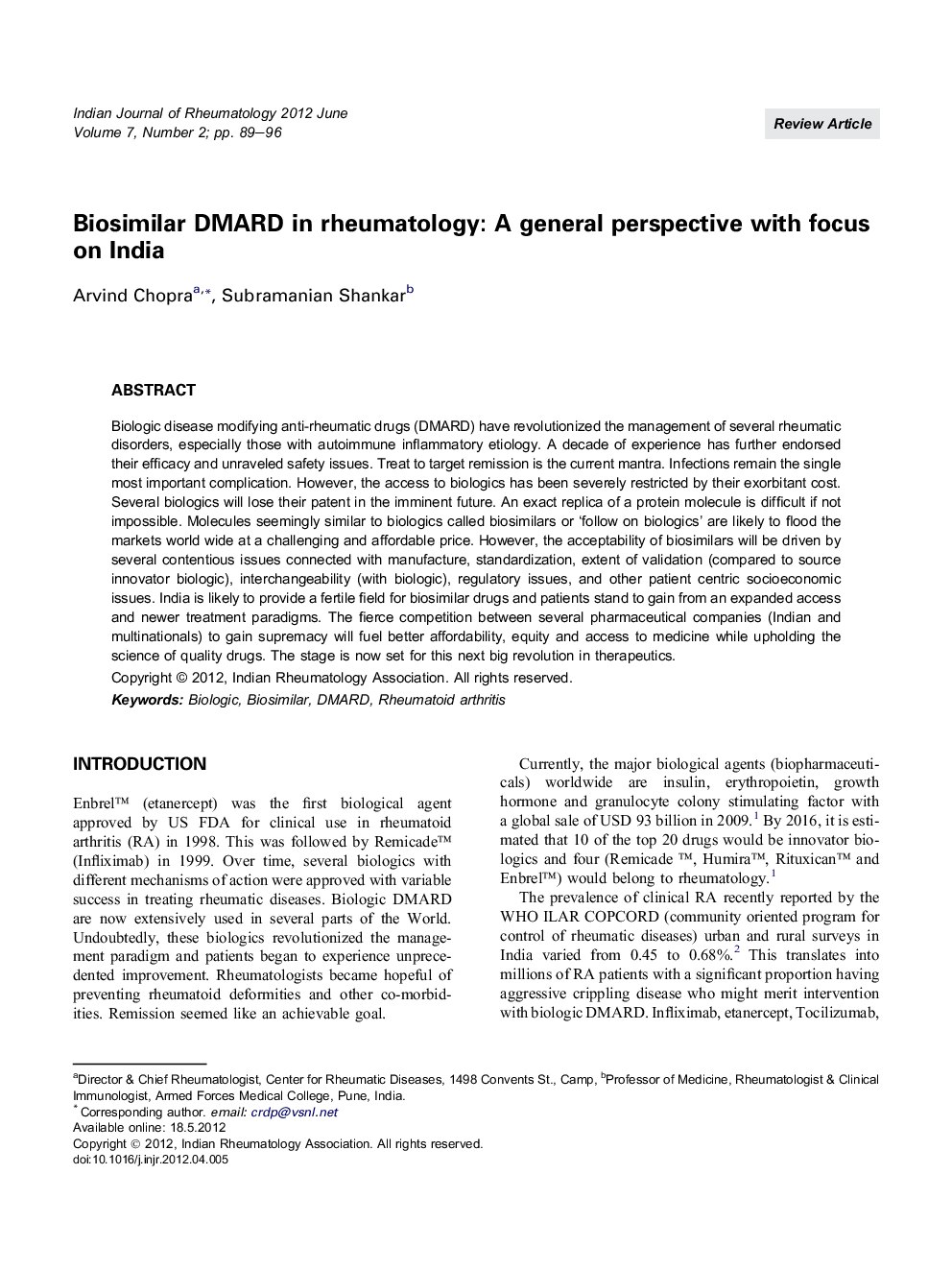| Article ID | Journal | Published Year | Pages | File Type |
|---|---|---|---|---|
| 3357120 | Indian Journal of Rheumatology | 2012 | 8 Pages |
Abstract
Biologic disease modifying anti-rheumatic drugs (DMARD) have revolutionized the management of several rheumatic disorders, especially those with autoimmune inflammatory etiology. A decade of experience has further endorsed their efficacy and unraveled safety issues. Treat to target remission is the current mantra. Infections remain the single most important complication. However, the access to biologics has been severely restricted by their exorbitant cost. Several biologics will lose their patent in the imminent future. An exact replica of a protein molecule is difficult if not impossible. Molecules seemingly similar to biologics called biosimilars or 'follow on biologics' are likely to flood the markets world wide at a challenging and affordable price. However, the acceptability of biosimilars will be driven by several contentious issues connected with manufacture, standardization, extent of validation (compared to source innovator biologic), interchangeability (with biologic), regulatory issues, and other patient centric socioeconomic issues. India is likely to provide a fertile field for biosimilar drugs and patients stand to gain from an expanded access and newer treatment paradigms. The fierce competition between several pharmaceutical companies (Indian and multinationals) to gain supremacy will fuel better affordability, equity and access to medicine while upholding the science of quality drugs. The stage is now set for this next big revolution in therapeutics.
Related Topics
Health Sciences
Medicine and Dentistry
Immunology, Allergology and Rheumatology
Authors
Arvind Chopra, Subramanian Shankar,
